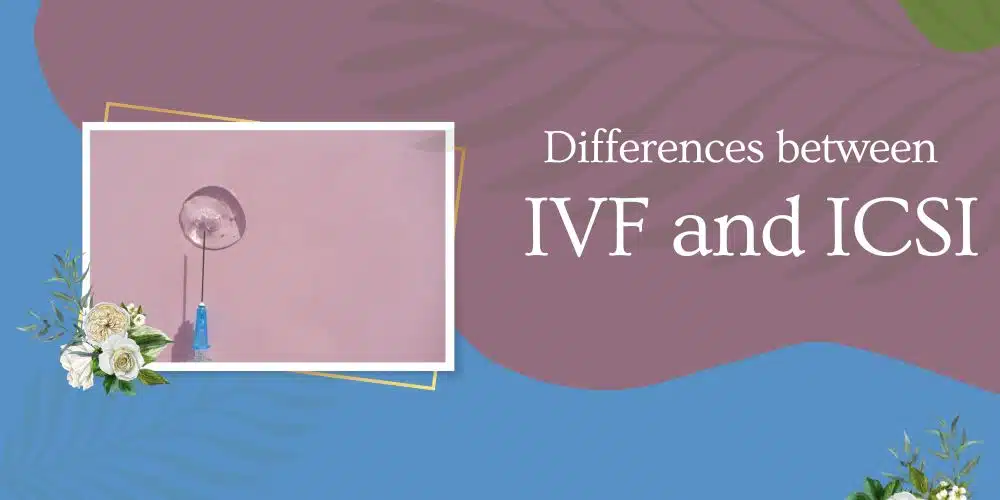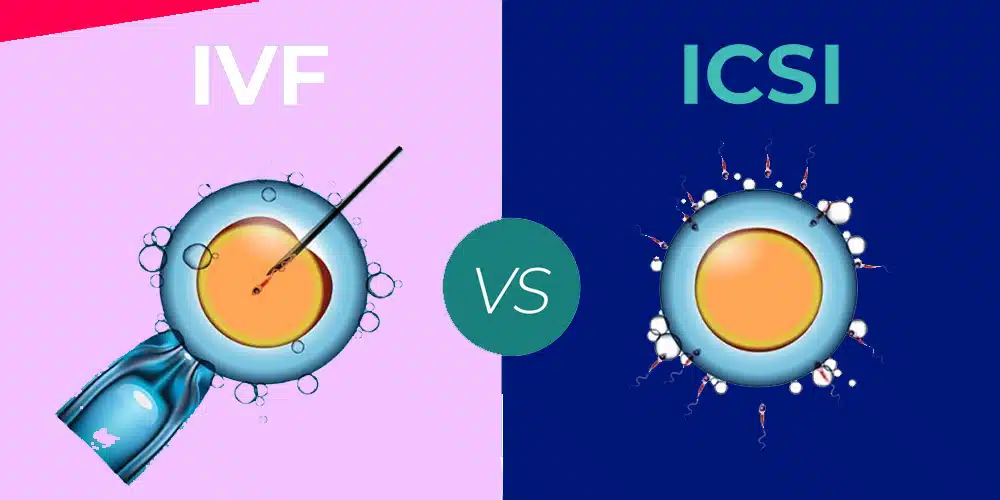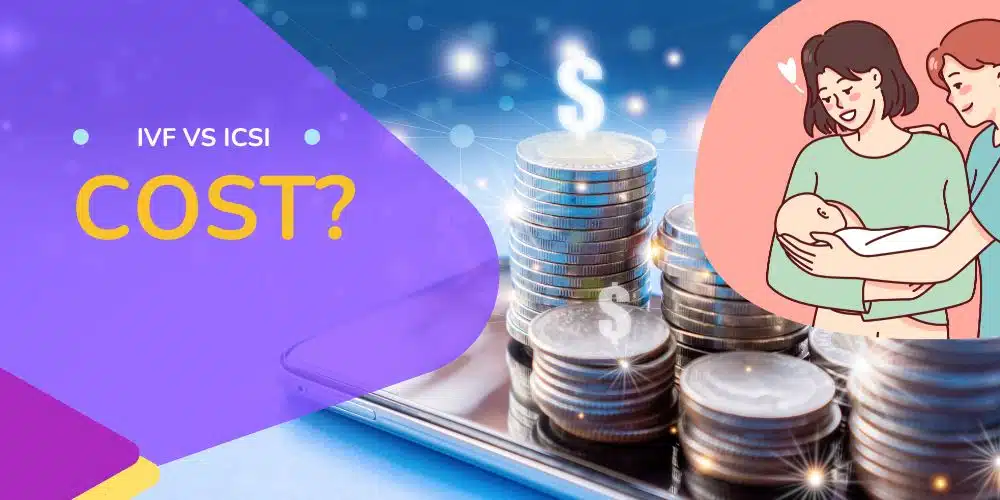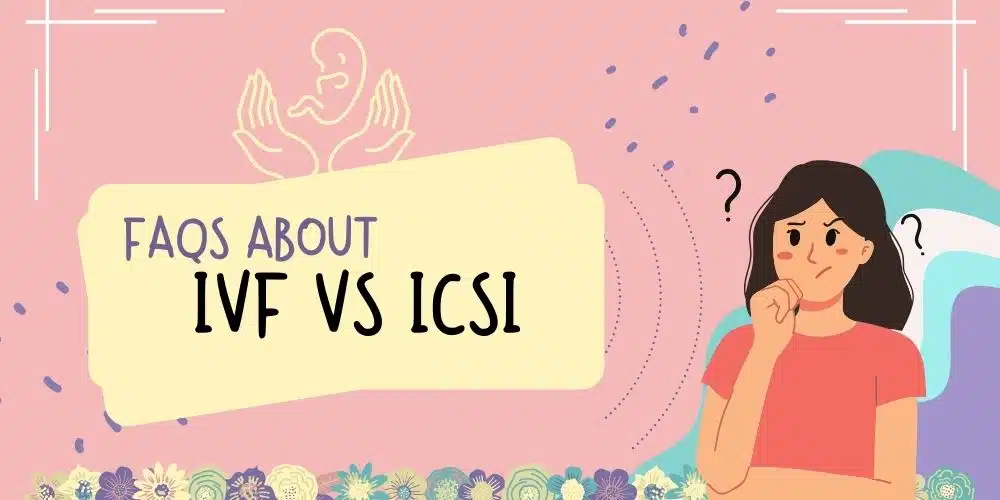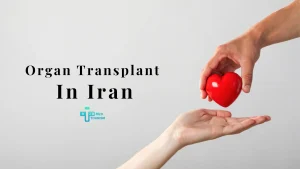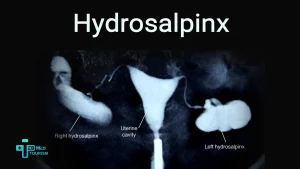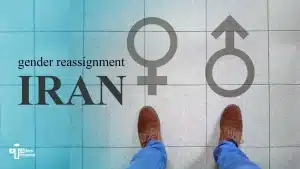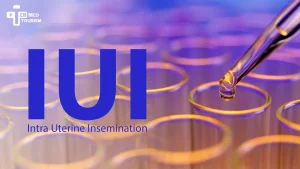One of the most important questions of people who want to participate in the infertility treatment process is what are the differences between these two cases? Although both of these processes can have the same result and give you the child of your choice, it is interesting to know that they have differences. There are 17.5 million infertile couples worldwide who need high-quality fertility care by applying ART techniques like IVF and ICSI! If you’re a new patient exploring the world of Assisted Reproductive Technologies (ART), this blog post on TebMedTourism is essential for understanding the miracle methods of IVF vs ICSI. Even if you’ve undergone IVF cycles before and are now considering ICSI treatment, it’s crucial to recognize the significance of information and data on conception. Many people are unaware of the differences, and it can come as a surprise when it comes to the final costs. Therefore, it’s wise to gather sufficient information about all aspects and consider the various price estimates before proceeding with any medical procedure. So, lets go to know about topics below:
- IVF and ICSI step by step (each one separately)
- Understanding IVF and ICSI procedures
- The cost of IVF and ICSI
- IVF and ICSI success rate
- IVF and ICSI risks and complications
- Supports and emotional consideration in IVF and ICSI
- Future of ART methods with special focus on IVF and ICSIWhich one is better for you: IVF or ICSI
IVF and ICSI
For years, infertile couples have endured the hardships of ineffective treatments, often resorting to superstitious practices, home remedies, inexperienced doctors, and even venturing to foreign countries at great expense in pursuit of IVF solutions. However, TebMedTourism recognizes the significance of knowledge and professional care in achieving positive outcomes. As a first step, we highly recommend engaging with informative articles such as this one, which aim to educate and familiarize you with the distinctions between IVF and ICSI.
What is IVF and ICSI treatment?
IVF
Briefly, if we want to talk about IVF, we should say in this extraordinary treatment, after blood tests and ultrasound, you will undergo the following items:
- Stimulation of the ovaries
- Egg retrieval (female partner)/ Sperm collecting (male partner)
- Fertilization (in lab environment via natural combining of egg and sperm)
- Embryo development (in a lab under an appropriate cultivation environment)
- Embryo transfer
- The pregnancy tests
ICSI
ICSI is a technical treatment, which in this method, by utilizing a needle, the sperm will be injected into the egg, which called microinjection! So, as you can understand from the passage, an embryologist will do this technique in the lab under a controlled, stable, and undisturbed environment!
What is the difference between IVF and ICSI?
If you want to know how IVF is different from ICSI, this topic is written for you. For patients who are highly observant and want to know every detail about infertility treatment, including side effects and success rates, it is crucially important! So, we will delve into both sides of IVF and ICSI and help you understand them thoroughly! To begin with, in simple terms: IVF (In Vitro Fertilization) involves combining an egg and sperm in a laboratory dish, while ICSI (Intra Cytoplasmic Sperm Injection) is the process of injecting a single sperm into an egg using high-tech microscopes! But that’s not the end of the story; you might think you’ve got it all figured out, but this is just the beginning of your journey for information! Both IVF and ICSI come with their own complexities, risks, and specific suitability criteria. Another significant difference between these advanced infertility treatments lies in one crucial aspect: the type of infertility you have! ICSI is specifically designed for certain candidates. If the primary cause of infertility is male infertility, which could be due to low sperm production or abnormal sperm function, then patients would opt for ICSI treatment!
Where are the similarities between ICSI and IVF treatments?
The most important question is: “How do embryologists prepare eggs and sperm?” A critical stage in IVF and ICSI is the preparation of the egg and sperm. The ovaries are induced to generate many eggs in both techniques, which are subsequently extracted. For Fertilization, the sperm is gathered and processed. In In Vitro fertilization, the sperm and eggs are combined in a dish and allowed to fertilize independently. A sperm is directly inserted into the egg during ICSI to fertilize it. The preparation of the egg and sperm is a significant similarity between the two techniques, notwithstanding their variances.
Is IVF and ICSI the same?
In most steps except one step, embryo development, they are the same! But your fertility specialist, after analysis all impacting factors, observing tests and evaluations, and finding what is interfering with your efforts to a successful pregnancy, will suggest IVF or ICSI procedures!
The IVF Process: A Step-by-Step Guide
IVF is a complex process, but we’re here to guide you through it. In our latest article, GOING THROUGH IVF JOURNEY 2024, we talked about IVF step by step deeply but here is a summary of the steps of IVF:
- Stimulating ovary: Medication is taken for 10 to 14 days to encourage the development of fresh, high-quality eggs.
- Egg retrieval: Eggs are collected from the intended mother or an egg donor in a hospital procedure with anesthesia to ensure a pain-free experience.
- Sperm collection: Fresh sperm is preferred over frozen sperm, depending on individual circumstances and policies. Fresh sperm has shown higher success rates.
- Fertilization: Embryos are created by fertilizing mature eggs with sperm in an incubator. In ICSI, sperm is injected into the egg using a needle.
- Embryo development and transfer: Embryos develop for 3-5 days before being transferred to the intended mother’s uterus.
- Pregnancy blood test: A blood test is conducted two weeks after embryo transfer to check for pregnancy. A follow-up test may be done on the 16th day.
You should know the entire IVF process takes around 28 to 33 days.
The ICSI Process: A Step-by-Step Guide
ICSI step-by-step draws you in with its careful attention to detail: you can see all steps, get information with names of each step, and if you have any questions, you can read related posts in TebMedTourism medical articles! And a glance at ICSI, you will see the following items:
- Holds the mature egg in place on a lab dish using a pipette, a tiny glass tube with a suction bulb.
- Utilizes a tiny needle to immobilize and collect one sperm.
- To access the cytoplasm, insert the needle into the egg.
- Sperm is injected into the cytoplasm.
The Cost of IVF vs ICSI
The cost of infertility treatments, specifically IVF and ICSI, can vary based on several factors such as the location, clinic, and laboratory used. Utilizing advanced technologies and genetic tests like PGD/NGS/PGT-A can contribute to the overall cost. Additionally, innovative methods like PRP, HA, and DF may be included in the treatment packages alongside the main procedures of IVF and ICSI. These factors can greatly impact the final cost of the treatments. For example, TebMedTourism offers IVF in Iran at a cost of $3,500, with their package including the use of embryo glue (Hyaluronic Acid or HA) to increase the chances of successful implantation. In comparison, the cost of one IVF cycle in the USA can exceed $16,000. The availability of innovative methods is a notable factor that distinguishes the cost differences among facilitators.
Success Rates of IVF and ICSI
Would achieving the highest success rate in infertility treatment be more accessible? TebMedTourism, a reputable company known for its high success rate in IVF and ICSI, has an exclusive response for you! To begin with, let’s address the question of whether ICSI is more successful than IVF. Recent research indicates that the IVF process can be equally effective as the ICSI process. However, in cases where male infertility plays a significant role in the fertility issues, ICSI is considered a remarkable treatment option. Additionally, the quality of embryos plays a crucial role in determining the success rate. Based on available data, both ICSI and IVF embryos exhibit similar quality, implying that both methods are efficient. Moreover, in a separate article focusing on the success rate of ICSI, we provide valuable tips that, when implemented, can help overcome potential complications associated with IVF and ICSI. These tips are highly beneficial in improving the chances of successful outcomes.
Risks and Complications of IVF and ICSI
To make an informed decision before undergoing any procedure, it is crucial to gather information about the risks and complications involved. If you’re interested in understanding the risks associated with both IVF and ICSI methods, continue reading! There are some common risks in both IVF and ICSI: – Increased chances of having multiple pregnancies (as multiple embryos may be transferred). – Higher potential for miscarriage. Specific to ICSI, there is an added risk: – Heightened potential for damaging eggs during the injection process, which involves inserting a needle into the egg. It’s worth noting that the risk of cognitive disorders in babies born through natural means is comparable to that of babies born through ICSI or IVF.
Does ICSI work better than IVF?
Many people say ICSI work better than IVF, but what is truth? The true answer to such a question is: “It varies”. Compared to traditional IVF, which fertilizes about 50% of eggs, ICSI fertilizes an average of 50–80% of the injected eggs. On the other hand, when there is no male infertility issue, research demonstrates that IVF is equally effective as the ICSI process. In these circumstances, the cumulative live birth rates in reputable clinics for IVF and ICSI were alike.
Emotional considerations and support during IVF and ICSI
During the IVF and ICSI procedures, emotional support can be obtained from various sources such as family, friends, support groups, and mental health professionals. It is also important to trust a reputable clinic like TebMedTourism, who can provide a free consultation with specialists. This allows patients to gauge their kindness and professionalism in helping individuals cope with the mental stress and anxieties that accompany these treatments. Becoming parents is a significant milestone in a couple’s life, and fertility specialists can assist in achieving this through ART methods like IVF and ICSI. However, undergoing these processes can be overwhelming for some couples, as mental well-being and fertility are interconnected. To ensure a more comfortable journey, it is essential for couples to have a clear understanding of each step and find ways to overcome moments of stress. Embarking on the IVF and ICSI journey with an experienced and well-known agency like TebMedTourism is a crucial step towards realizing the dream of parenthood.
Comparing IVF and ICSI: Which one is suitable for You?
ICSI is typically used for male infertility, while IVF is more suitable for female infertility, and although ICSI may still be used in the absence of male infertility, studies suggest it does not significantly increase the chances of pregnancy; therefore, if the sperm cannot reach the egg or cannot fertilize it, seeking professional consultation, such as a free consultation on WhatsApp, should be your first step.

FAQs about differences between IVF and ICSI
How is ICSI different from IVF?
ICSI, or Intra Cytoplasmic Sperm Injection, is a technique used in infertility treatment that involves injecting a single sperm into an egg using high-tech microscopes. On the other hand, IVF, or In Vitro Fertilization, involves combining an egg and sperm in a laboratory dish. The key difference is that in ICSI, a single sperm is directly injected into the egg, while in IVF, fertilization occurs naturally in the dish. Both procedures have similarities, such as the preparation of eggs and sperm, but they also have specific complexities, risks, and suitability criteria. ICSI is typically used for male infertility, while IVF is more suitable for female infertility, although ICSI can also be used in the absence of male infertility. It’s important to consult with a fertility specialist to determine the most appropriate treatment option based on individual circumstances.
Is ICSI more successful than IVF?
ICSI and IVF are both infertility treatment methods with their own differences. While ICSI is usually used for male infertility, IVF is more suitable for female infertility. IVF and ICSI success rates are comparable, but ICSI may have higher fertilization rates in cases of male infertility. Risks and complications are associated with both methods, including the possibility of multiple pregnancy and miscarriage. Emotional support is important during these treatments and seeking guidance from reputable clinics is recommended. Ultimately, the choice between IVF and ICSI depends on individual circumstances and should be consulted with a fertility specialist.
What is the difference between IVF and ICSI?
The difference between IVF and ICSI is in the fertilization process. In IVF, the egg and sperm are combined in a laboratory dish for natural fertilization, while in ICSI, a sperm is injected directly into the egg using a needle. Both procedures include ovarian stimulation, egg retrieval, embryo development and transfer to the uterus. The cost of IVF and ICSI can vary and the success rate is comparable. Risks and complications include the possibility of multiple pregnancy and miscarriage. Emotional support is important in both treatments. The choice between IVF and ICSI depends on the underlying cause of infertility.







